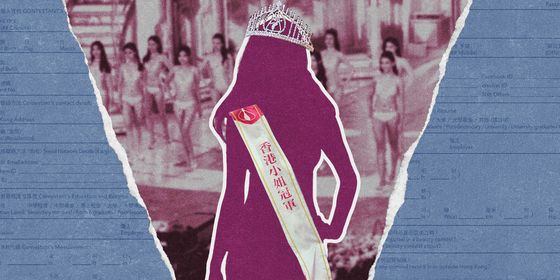The battle for the summer box office is still heating up in China. Here are some of the standout domestic productions that have generated buzz—both for better and for worse.
China’s summer box office has always been a key battleground for the film industry. While last year’s performance was underwhelming, there were still a few standouts, like Successor, which grossed over 3 billion yuan. This year, though, we’re still waiting for that one big breakout hit. Some of the most anticipated domestic productions, such as the star-studded She’s Got No Name, have flopped both critically and financially.
Imported films, on the other hand, have had a stronger showing this summer, bringing a wider variety to the screen. We’ve seen everything from classic Hollywood blockbusters like F1: The Movie, Ballerina, and Jurassic World: Rebirth, to live-action remakes of fan favorites like How to Train Your Dragon and Lilo & Stitch. On top of that, there’s been a nostalgic wave with re-releases of iconic Japanese anime films, including Doraemon the Movie: Nobita’s Art World Tales and Crayon Shin Chan: The Adult Empire Strikes Back.
With July just underway, it’s still too early to call a verdict on this year’s summer box office. In the meantime, TWOC has rounded up a few of the most talked-about films that have caught our eye. Here’s our lineup:
She’s Got No Name 酱园弄·悬案
Adapted from a sensational case that shook Shanghai during the Japanese occupation in the 1940s, She’s Got No Name centers on the homicide investigation and trial of a local woman surnamed Zhou (played by Zhang Ziyi), who is referred to as Zhan-Zhou, bearing her husband’s surname alongside her own. She is accused of brutally killing and dismembering her husband, whose head remains missing. Given her small physique, many question how she could have carried out such a grisly crime.
The high-profile case soon divided public opinion. One faction, led by the brutal police chief Xue Zhiwu (Lei Jiayin), believes there was a co-conspirator, possibly a lover, who helped Zhou and demands the death sentence for her crime. Others sympathize with her, seeing her as a victim of domestic abuse at the hands of her gambling-addicted husband. Among these supporters is Xi Lin (Zhao Liying), a playwright who published works defending Zhou.
First proposed by Hong Kong director Peter Chan in 2016, the film was eventually shot in 2023 in Shanghai at a cost of over 500 million yuan, featuring a star-studded lineup that included Yi Yangqianxi (also known as Jackson Yi). The film premiered as a 150-minute version at the Cannes Film Festival last year and was later released as the first installment of a two-part series in the Chinese mainland on June 21.
However, neither version of the long-awaited work has been well received. The film currently holds a 5.7 out of 10 rating on the popular review platform Douban. “The script and dialogue are so weak that the actors’ performances end up being the least complained part. The director should take full responsibility,” a comment on the platform wrote, winning over 4,000 likes.
The film attempts to explore women’s awakening during a turbulent period, set against the backdrop of a gruesome murder and long-standing patriarchal feudal traditions. But its supposed feminist theme has become the center of the audience’s ire, with one reviewer labeling it a ”fake feminist film.” Many took issue with the excessive screen time devoted to the police chief’s physical abuse of Zhou and his illogical, obsessive pursuit of her death sentence—even when that obsession put his own survival at risk.
The film’s poor reputation is also reflected in its box office performance. At the time of writing, She’s Got No Name is expected to finish with around 383 million yuan, less than 60 percent of its original forecast.
The release date for the second installment, which will follow Zhou’s fate after the fall of the Japanese puppet regime and the founding of the PRC in 1949, has yet to be announced. However, given the performance of the first film, its prospects don’t seem promising.
A Song Sung Blue 小白船
Fifteen-year-old city girl Liu Xian (Zhou Meijun) is sent to spend the summer in a small northeastern Chinese town with her estranged father. Her loneliness is soon interrupted by Jin Mingmei (Huang Ziqi), a spirited and attractive young woman living under the same roof—her mother and Liu’s father are dating. Jin warmly welcomes Liu into her life, sharing everything from her Korean cultural heritage and complicated relationships with men to her unstable childhood with a single parent and her desperate desire to escape a life of hardship. Their mutual disorientation with growing up and strained relationships with both parents and peers draw them closer, blurring the line between sisterhood and something more intimate.
The feature debut of 29-year-old director Geng Zihan was nominated for three awards at the 2023 Cannes Film Festival, including the Queer Palm. She also won Best Director in the Chinese-language film section at the 2023 Pingyao International Film Festival.
Some of the film’s dialogue is in Korean, with ethnic culture woven seamlessly into the narrative, from traditional clothing and cuisine to music and ceremonies. It reflects the often-overlooked cultural diversity of China’s northeastern provinces, shaped by their proximity to the Korean Peninsula and Russia. This backdrop also deepens the cross-cultural connection between the two protagonists. Featured in a major plotline, “A Song Sung Blue,” which is also the film’s title, references a Korean children’s song on parting that has enjoyed wide popularity in China.
With a predominantly female creative team, the 90-minute film offers a fresh take on the coming-of-age story, centering the female experience, from unique mother-daughter dynamics to women’s struggles with autonomy. Although the film’s execution reveals signs of inexperience and at times resembles more of a student production, it remains a bold and commendable exploration of genres that is rare in mainstream Chinese cinema.
Malice 恶意
It all began with a fatal fall. A young girl battling cancer plunged to her death from a hospital building. Was it a tragic accident, or was she pushed by the nurse who fell with her, as her mother, the sole eyewitness, had claimed? Ye Pan (Zhang Xiaofei), a media personality, is determined to find out the truth. But is she really after justice, or just chasing the buzz and traffic her account needs?
The 100-minute film chronicles three weeks of online discourse that thrust everyone involved into the spotlight, with their lives turned inside out and laid bare for public scrutiny. Produced by Chen Sicheng, creator of the Detective Chinatown series, the story explores the moral grayness of humanity. No one is completely innocent when placed under the magnifying glass. While there is no clear antagonist, every character is judged with malice amid the frenzy of online discourse.
The film currently holds a mediocre 6.3 rating on Douban. While the cast has been praised for their decent portrayal of characters, the plot itself is criticized for falling into a predictable pattern and lacking suspense. Many have pointed out that the movie feels padded and preachy at times.
A Cool Fish 2 无名之辈:否极泰来
Chen Sanjin (Zhang Yu), an LED light seller from Yiwu, supplies a TV station where his girlfriend, Xue Fangmei (Ren Suxi), works. However, he ends up with unpaid bills. During a heated breakup argument on the streets of Bangkok, the couple unexpectedly becomes entangled in a kidnapping scheme orchestrated by a criminal group. The story follows their struggle to deal with the gang while navigating their past grievances, all amidst gunfire and chaos.
But that’s just the beginning. The 122-minute film soon reveals itself to be a reality show, Goodbye Jerk, directed by Xue, designed to expose Chen’s selfishness, irresponsibility, and gambling habits, all while boosting the TV station’s ratings. Everyone involved is an actor, except for Chen. Chen’s struggles with death threats, rebellion, cowardice, and tough choices are all staged for the camera, placing him under global scrutiny for his actions. Many viewers have likened him to a “digital pet,” drawing comparisons to The Truman Show (1998). The film has been praised for its portrayal of the bravery and wisdom of ordinary people in times of crisis.
However, as the sequel to the 2018 hit A Cool Fish, which earned an impressive 794 million yuan at the box office and received an 8 out of 10 rating on Douban, this dark comedy falls short of expectations. With a mere 5.8 rating on Douban, it has faced criticism for its overuse of Truman-esque settings. One viewer on Douban argues, “It exploits human vulnerability through fake horror, forcing audiences to consume Chen’s real fears and breakdowns, only to end with a hollow resolution: The audience all sympathizes with Chen, Xue apologizes to him, and Chen easily forgives it all.”
















